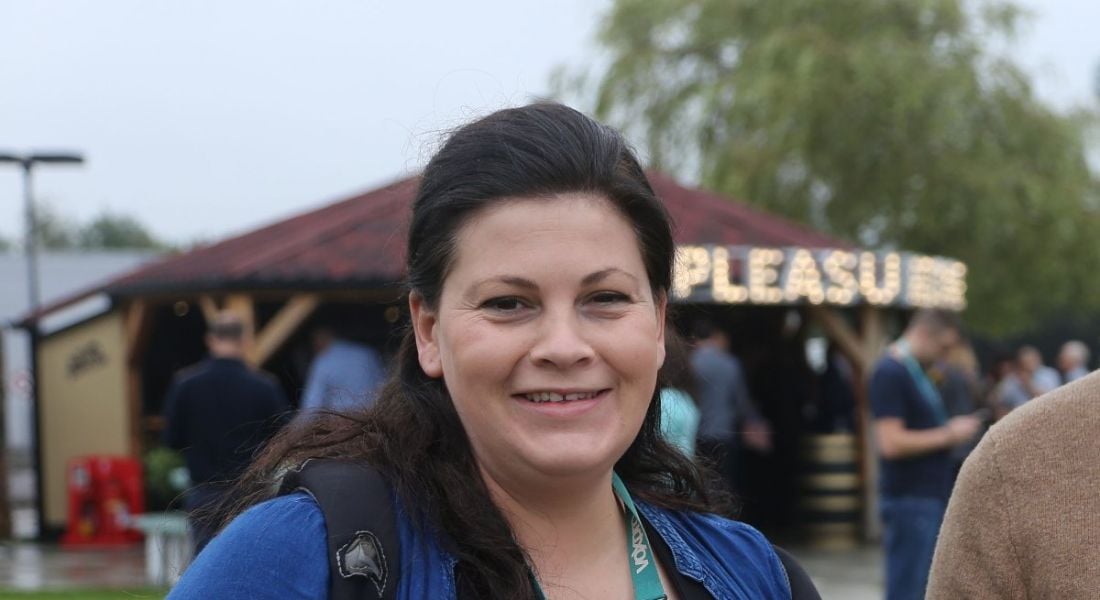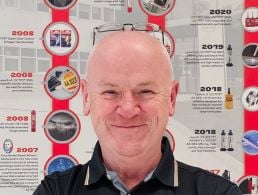Voxpro’s Nikki Clancy believes the best way to get into continuous improvement is to figure out what someone’s ‘pot of gold’ is.
The service that Voxpro provides – multilingual customer care and tech support – has become vital in Ireland in the past decade, during which tech multinationals have arrived in their droves and set up their European head of operations here in Ireland.
Every system can always be better. For Nikki Clancy, implementing incremental improvements is her bread and butter at Voxpro in her position as continuous improvement manager.
She sat down with Siliconrepublic.com to talk about how continual growth processes have begun to be applied to businesses outside of manufacturing, about inspiring passion for continuous improvement in her co-workers and the gender imbalance in STEM.
What drew you to this career area?
Its versatility would be one of the primary motivations, to be honest. My degree in computer science is an educational adaptor plug – one which you can stick in any vocational socket – and, from my experience, it will give you options and power your career.
What’s the best thing about working in continuous improvement?
Continuous improvement (CI) only works when executed in collaboration with others. When done well, you not only get to identify where improvements can be made, but make real and meaningful differences to people’s lives and to the bottom line.
What’s the most exciting development you’ve witnessed in your sector since you started working in it?
The growth of continuous improvement in sectors outside of manufacturing. CI practices are becoming an integrated part of the customer service sector – standards are improving and the culture is changing.
What aspect of your job did you struggle/have you struggled to get to grips with?
Influencing everyone with whom I work to become as passionate as I am about continuous improvement. We all do the best we can every day. It’s harnessing that organisational passion into a unified force for a single goal – that’s the constant struggle of the CI professional.
What’s been the hardest thing you’ve had to face in your career and how did you overcome it?
We live in the age of big data, and that includes knowledge around our own personal spheres of expertise. Being a full-time professional while living in an ecosystem that could have you as a full-time student, finding the balance between learning and executing can be a constant challenge.
Thankfully, there are many resources available to manage both the flow of information and simultaneous learning, which definitely helps with this challenge.
If you had the power to change anything within the STEM sector, what would that be?
Given that almost every talk show and political discussion involves equality in all aspects of life today, it would be remiss of me not to advocate that in the STEM sector.
I recently attended a conference in Dublin and, while the female delegates were outnumbered by the males, I did feel encouraged by the number of women that were there.
If I had the power to change something, it would be to make the educational pathways into the sector more attractive to women so that this imbalance can be redressed more effectively.
Which of your personality traits makes you best suited to continuous improvement in tech?
First and foremost, teamwork. I believe in the power of collaboration and love working in teams. One of the things I quickly learned when starting out was that I don’t have all the answers, but I have a skillset that allows me to ask useful questions of others in a way that they respond to.
This has enabled me to unlock others’ potential, identify great solutions while simultaneously achieving buy-in – three critical elements to any continuous improvement programme.
Is there something in your personal life that helps you/has helped you in your job?
I’m a huge animal lover and do volunteer work with an animal charity. If you can, I’d really recommend everyone to do some volunteer work.
As well as being very rewarding on a personal level, it can also improve your network and give you different perspectives – both very important for your career.
How do you make connections with others in the STEM community?
Social media is a fantastic way to connect with others and stay informed. I’d imagine there are very few who do not use this medium to stay in touch with their community.
However, I always find that one of the best ways to connect is to attend conferences or events, go meet like-minded people face to face and talk.
Has mentorship or coaching been important in your career?
Absolutely. I’ve been extremely fortunate to have had a couple of amazing mentors over the years who have passed on skills and knowledge to me that otherwise could have taken much longer to acquire.
Unfortunately, I do also know that it can be difficult to find a mentor due to the fast-paced environment most of us work in.
That said, it is worth noting that different people can act as mentors for you in different aspects of your life and career, if you are always open to learning and growing.
I’d hate to think anyone reading this would assume that it always takes a formal mentor to provide insights and guidance in one’s development.
What advice would you give to someone thinking about a career in your area?
Don’t take no for an answer and try and gain understanding around what other people want/what their ‘pot of gold’ might be.
When you take the time to discover that, it’s easier to frame and align your goal to theirs. In a nutshell, walk a mile in their shoes.




